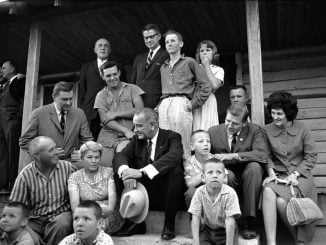Many Christian denominations and churches across the world are nearing the celebration of the 500th anniversary of the Protestant Reformation. October 31 marks the anniversary of Martin Luther nailing his 95 theses to Castle Church door in Wittenburg, Germany in 1517. Debate over Scripture, conscience, and church authority ultimately launched a revolution that reshaped Western Civilization and ushered in the modern world. “The Protestant Reformation was one of the most far-reaching events of the last millennium. It ended the millennium-old hegemony of the Catholic Church in Western Europe and altered political and economic fortunes wherever it reached,” declared professors Sascha O. Becker, Steven Pfaff and Jared Rubin.
At the forefront, the Protestant Reformation was mainly about theology with issues like justification by faith, grace, and a broader access to the Scriptures. However, Luther’s ideas and the larger Reformation heavily impacted civil society, government, and religious liberty. Even many secular publications and media outlets have labeled Luther one (if not the most) of the central figures of the millennia. When Luther proclaimed at the Diet of Worms that “Here I stand, I can do no other,” he helped to elevate the principles of individual conscience and unalienable rights.
Luther’s concept of the priesthood of all believers made the ordinary parishioner into a leader in the congregational life of the church. Bestowing royalty directly through Christ diminished some of the powers of the clergy, while strengthening the spiritual significance of vocation outside of the Church. Luther liked to remind his parishioners that it was a non-clergy member, Emperor Constantine, who called for the most important council in the history of the Church at Nicaea in 325. The priesthood of all believers concept too helped spread the ideas of representative government within the Church, which led to the dissemination of Democratic ideals across Europe and America. The government and administration of the church was no longer just for the clergy, but a solemn responsibility of the laity.
This eroded a belief in the divine right of monarchs. “There is no King, but King Jesus,” a rallying cry in the colonies during the American Revolution, had its roots in the Reformation.
One of the greatest impacts of the Reformation was the rise of literacy and education, particularly among children. Many of the modern concepts of preschools and the importance of early education grew out of the Reformation. Education of females increased immensely after the Reformation. The translation of the Bible into the vernacular was critical not just for knowing and learning about God, but cultivated a greater quest for knowledge in the world. For Protestants, ultimate authority shifted from Church hierarchy towards the Scriptures. Reformation emphasis on Sola Scriptura impacted the birth of the American Constitution, where a written document supersedes and limits the decrees of earthly leaders.
While the translation of the Bible and particularly the English Bible played a pivotal role in the whole framework of the equality of man, the Reformation too differs from modern concepts of rabid individualism and freedom. While America is rapidly becoming more individualistic and secular, freedom to the Reformers did not mean a freedom of selfishness or hedonism. In their mind, freedom was oriented not towards the self, but towards God and serving the Church. True freedom was cultivated and strengthened through responsibility and a virtuous life.
While traditional notions of family are withering away in American culture and society today, the Reformers helped to elevate the idea of the family, placing it on an equal plane to singleness and celibacy within the Church.
The Reformation and Scripture has played an indelible role in shaping American political culture and thought. And while many of its best ideas and influences are lost on America today, the good news is that we live in a land ripe for spiritual reform and renewal.



